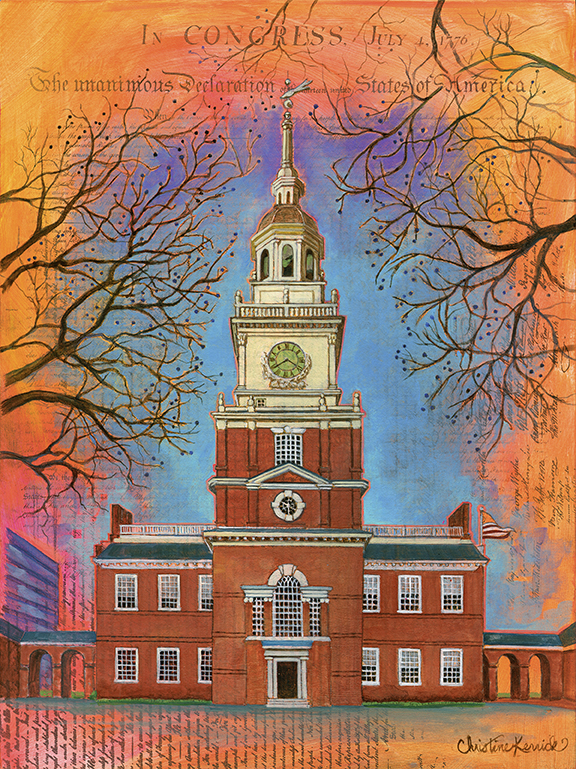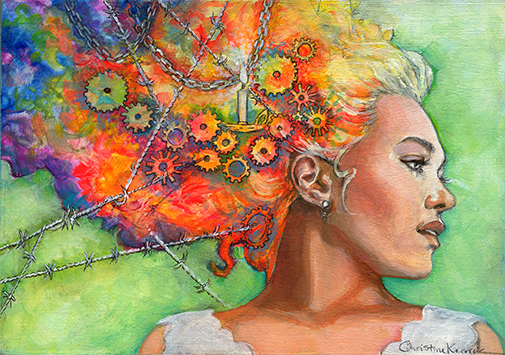
This may not be an exciting article, but I felt the need to write it to clarify things. First of all, I am NOT an intellectual property lawyer, so anything in this blog is for informational or entertainment value. It is not legal counsel. Laws change, so always consult an attorney or the government web site before you do anything.
Your best resource for copyright law and getting a copyright is copyright.gov and The Library of Congress (copyright.gov is more direct). Do NOT go to a ‘.com’ or ‘.org’ site. Go to the government site. That said, here are things you should know about copyrights:
- You own your creations. Once an ‘original work’ (something with even a little creativity) is finished/created and ‘fixed’ (captured in a permanent medium), you own it and can perform, print, play or otherwise display and sell the work. No one can reproduce it in any way without your permission. One limitation I can think of is portraits. You can sell an original portrait, but my best practice is to ask permission from the subject of the portrait to sell it as prints. You are, after all, making money from their likeness.
- You own your work for a lifetime plus 70 years. Your work can be transferred to someone else, as in a will, or sold. The family of one of her photographers still owns Marilyn Monroe’s images, even though the photographer has passed away.
- You should register your work. Even though you do own your work, if there is a case of your work being used/stolen, you want to walk into a court with your copyright papers so you can bring the case to a close as soon as possible.
You can also group-register your works. Instead of paying the $40 fee (or whatever it is now) for each piece, you can register multiple pieces under one registration. The Library of Congress will send you your official ‘ownership’ copyright form, which you will keep in a safe place.
- When in doubt, seek them out. If you’re someone who wants to use an artist’s work (or a musician’s work, or any other work), find the creator and ask them to buy or license the work. They may ask you to pay for rights, or may just let you use it, but get it in writing. Fair Use is an exception, and you can read more about that here: https://copyright.gov/what-is-copyright/.
- Artists, beware. I saw a YouTube video of an artist who said she hates when people copy directly from a photographer’s work. Just for fun, I Googled her work, then put one of her paintings into Google’s image search. You guessed it: a photo—not hers—of a tiger came up, just like she’d painted. Maybe she just didn’t like other people copying photographers’ work. Be careful of copying the work of photographers who, just like you and me, are working hard in their craft to make a living. It’s like copying a painting.
- What about fan art? Comic book conventions are packed with young artists doing ‘fan art’, or, drawings of movie, video game and cartoon characters. Technically, this is copyright infringement, though the shows seem to let people do it. These artists sell online, too. As an artist, I would rather see what comes from people’s own minds, than copying a cartoon character. And these artists also have to be prepared to ‘cease and desist’, if they’re asked to.
- Cease and desist. I, like many artists, have had work stolen. In the licensing world, people from other countries think nothing of stealing art online and reproducing it on items. This is very difficult to stop. Fellow artists also do this. At this point, an artist can issue a ‘cease and desist’ letter. If it happens on Facebook, which it did to me once, where someone used my Jesus image as his icon and called himself ‘God’, I emailed Facebook and had it taken down. It’s a shame to have to do that, but I had contacted him numerous times first (do this before you do a ‘cease and desist’), but got no answer.
Many people don’t know that they can’t just take an image, and that works are under copyright law. Sharing on Facebook doesn’t count here; you want people to share your work, but only if it has your name attached, and, ideally, as you posted it.
As I said earlier, your best bet for copyright information is from the source: www.copyright.gov and the Library of Congress, where your records live once you register your work.

